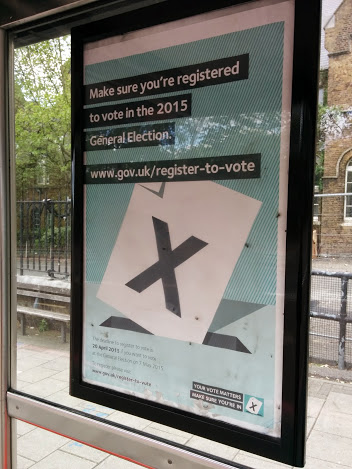
Approximately 14,000 individuals were denied the right to vote at the local elections in May due to lacking the required ID, according to the official elections watchdog. The Electoral
Commission's interim study also raised concerns about potential disproportionate effects on voters with disabilities, unemployed individuals, and certain ethnic groups.
The report further revealed that 4% of non-voters cited voter ID as the reason, potentially amounting to hundreds of thousands more affected individuals.
The Electoral Commission recommended that additional measures be undertaken by the government to ensure that people are not prevented from exercising their right to vote. The voter ID policy was implemented for the first time in its entirety during the May elections, requiring voters to present specific forms of photo ID in general and parliamentary by-elections across the UK, as well as in local elections in England.
Critics of the policy argue that it addresses a minimal issue of voter impersonation while posing a risk of disproportionately impacting marginalized groups.
Data collected from polling stations across 230 English councils on May 4 revealed that 0.7% of voters were initially turned away due to lacking proper ID. Of these, 63% were able to return and cast their vote, confirming the denial of voting rights for approximately 14,000 individuals.
However, the actual number is likely higher, as nearly 40% of polling stations employed greeters who informed voters about the ID requirement before entering. If individuals left without entering the polling station, their data was not recorded. Stations with greeters showed lower rates of turned-away voters, 0.55% compared to 0.8% in stations without greeters.
Moreover, the statistics may underestimate the scope of the problem as some polling stations provided incomplete or inaccurate data, the report cautioned.
Separate polling conducted by the commission revealed that 4% of non-voters attributed their abstention to the new ID rules. Of this group, three-quarters stated that they lacked the necessary documents, while the remaining disagreed with the policy.
Although the total electorate and turnout for the May elections are yet to be published, if they follow previous years' patterns, it could mean that at least 400,000 people chose not to vote due to the new rules.
While a broader report in September will explore demographic factors, initial evidence suggests that the voter ID policy disproportionately affected people with disabilities or unemployed individuals, with some correlation observed with ethnicity.
Craig Westwood, head of policy at the commission, noted that it was too early to draw definitive conclusions but acknowledged the concerning emerging evidence. Efforts are underway to better understand the specific experiences of voters affected by these elections to ensure accessibility for all.
Labour's deputy leader, Angela Rayner, criticized the voter ID regulations, stating that no legitimate voter should be excluded from democracy, and that the rules have had a chilling effect on democracy, particularly for underrepresented groups.
Helen Morgan, the Liberal Democrats' local government spokesperson, viewed the policy as an attempt at voter suppression by Conservative ministers who seek to evade accountability by any means possible.
A spokesperson for the Department for Levelling Up, Housing and Communities welcomed the report, highlighting that 99.75% of voters were able to cast their vote successfully. They emphasized the confidence in local authorities' ability to implement the changes while ensuring robust and secure elections. Photo by Bondegezou, Wikimedia commons.




































